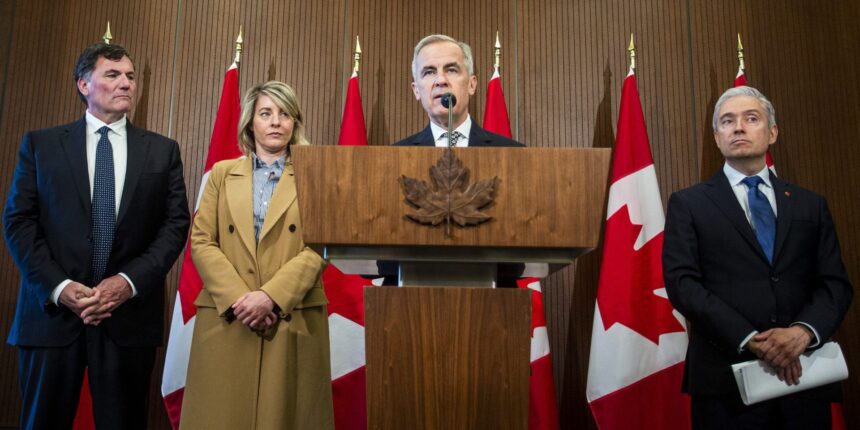In a move that has raised eyebrows across Canadian economic circles, Ottawa’s recent retreat on its digital services tax implementation timeline has sparked fresh concerns about Canada’s negotiating position with a potential second Trump administration. The federal government’s decision to delay the controversial tax on tech giants until 2025 has been interpreted by many analysts as a sign of preemptive capitulation to American trade pressures.
“This postponement sends a troubling signal about Canada’s resolve in future trade negotiations,” explains Dr. Martha Reynolds, trade policy expert at the University of Toronto. “When you back down before formal talks even begin, you’re essentially showing your cards too early in the game.”
The digital services tax, designed to capture revenue from tech corporations that profit from Canadian users but pay minimal taxes domestically, has been in development since 2021. Originally scheduled for implementation in January 2024, the tax has now been pushed back twice, with the latest delay extending to 2025.
Finance Minister Chrystia Freeland defended the postponement as strategic alignment with international tax reform efforts, but critics remain unconvinced. The timing of the announcement, coming just months before the U.S. presidential election, has fueled speculation that the Trudeau government is preparing for potential trade hostilities should Donald Trump return to office.
“The digital tax has been a particular irritant in Canada-U.S. relations,” notes James Henderson, senior fellow at the Canadian Trade Policy Institute. “While there’s wisdom in avoiding unnecessary conflict, continuously delaying implementation risks undermining Canada’s sovereignty in taxation matters.”
The stakes are particularly high given Trump’s previous approach to trade negotiations with Canada. During his first term, the former president imposed tariffs on Canadian steel and aluminum, calling our country a “national security threat” – a designation that shocked many Canadians.
Recent polling data suggests trade concerns rank high among Canadian business leaders. A survey conducted by the Canadian Chamber of Commerce found 78% of respondents worry about renewed trade tensions with the U.S. in 2025, with 65% specifically concerned about digital economy regulations.
Economic modeling by the Parliamentary Budget Office estimates the digital services tax could generate approximately $4.2 billion in revenue over five years – funds now potentially at risk as implementation timelines shift. For context, this represents nearly half the annual federal budget for infrastructure improvements across the country.
International precedent offers little comfort. When France implemented a similar digital tax in 2019, the Trump administration threatened retaliatory tariffs, eventually leading to a compromise that many political analysts viewed as favorable to American interests.
“What concerns me most is the pattern this establishes,” says Dr. Reynolds. “If Canada appears unwilling to stand firm on taxation policy, what message does that send regarding other trade priorities like supply management, softwood lumber, or energy exports?”
The decision places Canada at a potential crossroads in its approach to digital economy regulation and broader trade strategy. While avoiding immediate conflict might seem prudent, experts warn that appearing too eager to compromise could weaken Canada’s position in future negotiations not just with the U.S., but with other trading partners watching closely.
As Canadians contemplate these developments, a critical question emerges: In an era of intensifying economic nationalism and digital transformation, can Canada balance international trade relationships while maintaining meaningful fiscal sovereignty over the digital economy that increasingly shapes our lives?










